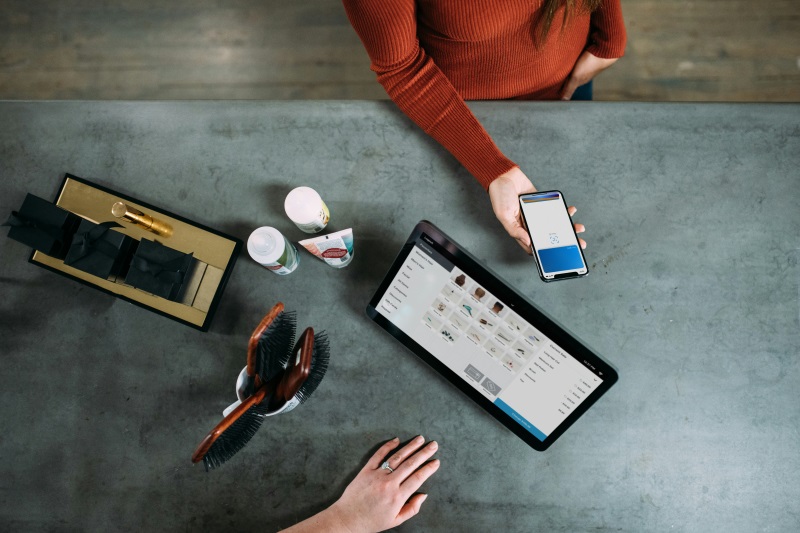Blog post
Trump Compares UK's Demand for Apple User Data to Chinese Monitoring

Feb 28 (Reuters) – In a controversial statement, U.S. President Donald Trump compared the UK government’s request for Apple (AAPL.O) to grant access to some user data to the kind of mass surveillance seen in China. Speaking in an interview with The Spectator political magazine on Friday, Trump criticized the demand, stating that he had personally told British Prime Minister Keir Starmer that such actions were unacceptable.
The remarks came after the two leaders met at the White House on Thursday, where discussions focused on issues including Ukraine, cybersecurity, and a potential US-UK trade deal. The UK’s request to Apple for access to encrypted user data has reignited the global debate on privacy, government surveillance, and the role of tech giants in law enforcement.
Trump’s Strong Reaction to UK’s Request
Trump’s opposition to the UK’s stance on Apple user data stems from broader concerns about government overreach and digital privacy. Comparing the UK’s request to China’s surveillance policies is a strong rebuke, given Beijing’s history of strict internet censorship, state surveillance, and digital monitoring of its citizens.
"This is something you hear about with China," Trump said, emphasizing that he had warned Starmer against taking such steps. "I told him, ‘You can’t do this.’"
The statement signals the U.S. administration’s ongoing stance in favor of strong encryption and limited government access to private user data—a position that has put Washington at odds with certain allies pushing for more cooperation from tech companies.
What Does the UK Want from Apple?
The UK government has been pushing for Apple and other tech companies to provide law enforcement agencies with access to encrypted messages and data when national security concerns arise. British authorities argue that encrypted communication platforms—such as iMessage, WhatsApp, and Signal—are frequently used by criminals and terrorists, making it difficult for security agencies to monitor threats.
The UK’s request is part of a broader push under the country’s Online Safety Act and Investigatory Powers Act, which aim to regulate digital communication to prevent crime, terrorism, and online abuse. However, privacy advocates and technology companies argue that such measures weaken encryption and put all users at risk.
The Global Debate on Encryption and Government Access
The UK’s request for access to Apple user data is just the latest chapter in the ongoing global debate over encryption and government access to private communications. Governments worldwide have been pressuring tech companies to provide "backdoor" access to encrypted messages, arguing that it is necessary to combat crime and terrorism.
However, Apple and other tech firms have strongly resisted these demands, arguing that weakening encryption for one government could create vulnerabilities that hackers and authoritarian regimes could exploit. Security experts warn that any form of “backdoor” access would make all users—including law-abiding citizens—more vulnerable to cyberattacks.
Trump’s Approach to Digital Privacy
Trump’s comments indicate that his administration remains committed to protecting strong encryption and preventing government overreach into user data. The U.S. has previously resisted similar pressures from its own law enforcement agencies, with Apple famously refusing to unlock iPhones in high-profile criminal cases, including the 2016 San Bernardino shooting.
During his presidency, Trump has maintained a complex relationship with Big Tech, at times criticizing social media companies while also defending user privacy against government surveillance. His administration’s stance on encryption aligns with Silicon Valley’s position that strong digital security is essential for both individual privacy and national security.
Reactions from Privacy Advocates and Lawmakers
Trump’s remarks have sparked strong reactions from both privacy advocates and lawmakers:
- Privacy Groups: Digital rights organizations such as the Electronic Frontier Foundation (EFF) and Amnesty International have praised the president’s defense of encryption, arguing that any compromise on security would set a dangerous precedent.
- UK Officials: Some UK lawmakers have defended their stance, stating that access to encrypted data is crucial for national security and law enforcement efforts.
- Tech Industry: Apple has yet to release an official statement, but the company has historically opposed government access to user data, reinforcing its commitment to end-to-end encryption.
How This Could Impact US-UK Relations
The disagreement over Apple’s user data access comes at a time when the U.S. and UK are working to strengthen their diplomatic and economic ties. The two nations are currently negotiating a bilateral trade agreement, and tensions over digital privacy could complicate discussions.
With global cybersecurity threats rising, both countries recognize the need for cooperation on digital security, cybercrime, and online safety. However, the debate over encryption may create new friction in the transatlantic alliance.
What’s Next?
As technology continues to evolve, the debate over privacy vs. security will likely intensify. Apple, along with other tech giants, will face increasing pressure from governments worldwide to comply with regulations that may conflict with their commitments to user privacy.
The U.S. is expected to maintain its stance in favor of strong encryption, while the UK may continue to push for increased surveillance powers. The outcome of this dispute could shape global digital rights policies for years to come.
Conclusion
Trump’s comparison of the UK’s Apple data request to China’s surveillance practices is a strong rebuke that underscores the growing tension between government oversight and digital privacy. While national security remains a priority, the debate over encryption and government access raises critical questions about individual rights and cybersecurity risks.
As discussions continue, both the U.S. and UK will need to find a balance between protecting citizens and upholding fundamental digital freedoms. With Apple at the center of this global debate, the tech industry’s response in the coming months will be closely watched by governments, businesses, and privacy advocates worldwide.





